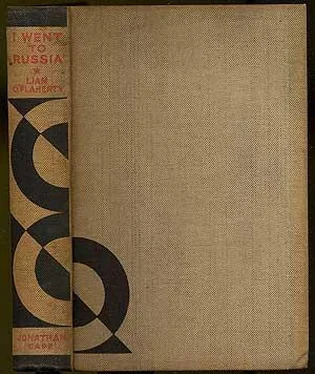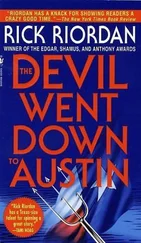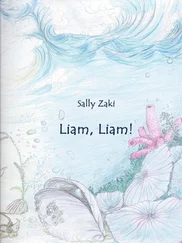On the way he explained to me that we were going at first to the fiction publishing department of the government.
‘The situation is such,’ he said. ‘You have told me that you have a book about to be published in London. Therefore we shall sell that to the publisher and receive money. Then you shall telegraph for the manuscript. It happens so. It is impossible for us to send money abroad to writers for their work, owing to the difficulty of getting foreign valuta. The bloody bourgeoisie does not recognise Soviet currency. It is part of their war on our Union. Therefore it is difficult for us to get foreign money except in exchange for our exported goods. Also, every kopeck is needed for the Five Year Plan, all the foreign money, as we have to buy machinery with it. But when a foreign writer comes to Russia then he can receive payment in Soviet currency. The situation is such.’
We entered a large house, which was about ten times as large as the largest publishing house in London. There was a horde of clerks and offices that seemed innumerable and we wandered along corridors and up stairways for some time until we came to the palatial office of the manager. A most excellent and extremely efficient and charming man. I shook hands with him at twelve o’clock exactly. At fifteen minutes past twelve I had signed his contract for the book in question. At thirty-five minutes past twelve I had received five hundred roubles in advance royalties at the cash desk downstairs.
He had served his apprenticeship to publishing in the United States, which may have explained his efficiency. Even so, he must have been a man of great ability to make Russians as efficient as himself. I was told that he had received various decorations from the government as a reward for his good work. He was, of course, like everybody, practically, connected with publishing, journalism and letters in Moscow, a Jew; a large man with a pale face and a hare lip, bright, eager eyes and a habit of always smiling.
Armed with these roubles, Levit and myself went forth into the city to beard the passport people. We had first to visit the Society for Cultural Relations with Foreign Countries, in order to get a ratification of my bona fides. This sounds odd, but everything in Russia is arranged in this odd fashion. It is just as if James Joyce had to go before the Academie Frangaise before going to the Prefecture de Police for permission to live in Paris.
This society occupied a large house, which had formerly, in all probability, been the town house of some aristocrat. As far as I could gather it was directly under the control of the police; at least in so far as the surveillance of foreigners resident in Moscow is concerned. It provided very charming girl guides and instructors in the Russian language, together with inviting important foreigners to visit the Soviet Union and publishing a journal which is widely distributed abroad to keep the world in touch with the developments in Russia.
That such organisations, influenced by the police, exist among us in Western Europe goes without saying. But espionage is managed in a much more subtle manner. In England, especially, foreigners and people of doubtful patriotism are rarely conscious of police supervision; yet the English espionage system is probably the most efficient in the world. That it failed in Ireland during the revolutionary troubles in that country is no proof of its inefficiency; for the reason that the Irish are still more clever at the business and provide a large percentage of the Imperial spies. At least they did so in former times.
But the Russians carry espionage and police surveillance to such an extent as to make it ridiculous. They certainly succeed in antagonising foreigners who might otherwise be sympathetic. Nobody likes to be followed about and watched continually.
In the office of this society I was presented to a gentleman who announced that he was in charge of the English and American section. He had been in America and spoke English moderately well. He produced an unpleasant effect on me, for some reason; especially by his fixed habit of never looking me straight in the face and speaking as if I had done him some injury.
I am very interested to find out,’ he said, ‘whether you could help us in setting up a branch of the Friends of Soviet Russia in Ireland.’
I’m afraid that I am not very good at organising things,’ I said. I imagine that the Trade Unions are the best means of doing that.’
‘Yes,’ he said, rubbing his hands together slowly, ‘but that has nothing to do with us. We are not connected with the Trade Union movement. We are interested solely in cultural relations. We would like to get in touch with people like Mr. George Russell and Mr. W. B. Yeats and other people of consequence, who are also prominent in the world of letters in Ireland.’
‘But in what way could they help you?’ I said. ‘Mr. Yeats is interested in Fascism rather than in Communism and Mr. Russell is interested almost solely in the religions of the Far East.’
‘Yes, but they might help to propagate the ideas of the new Russian culture. It is not necessary for people to be Communist or even Socialist in order to be of assistance. They might help to counteract the campaign of lies that is being directed against us.’
‘Excuse me,’ I said. I’m not very brilliant as a politician or as a judge of political tendencies, but I feel sure that your efforts to make use of intellectuals who earn their living under capitalism, who are better off under capitalism than they could possibly be in Soviet Russia, is hopeless. The Soviet theory of politics is based on the assumption that there are in society only two classes, the working class and the capitalist class and that there is perpetual war between these two classes and that the Soviet Union is the champion of the working class against the capitalist class. All these intellectuals know that. They are all, more or less, adherents of the capitalist class, even ones like Mr. Shaw, who amuse themselves by claiming an alliance with socialist ideas. You are wasting your time by trying to do anything with them. Build up your cultural societies among the workers. It will pay you better. It is sheer folly to imagine that any favourable publicity on the part of European intellectuals will prevent Europe from going to war with the Soviet Union. Look at history. After the French revolution, various English intellectuals became Jacobins. But they became English at once when Napoleon began to look with greedy eyes at England.!
‘But the situation is different,’ he cried. ‘We have no Napoleon here.’
‘Worse luck for you,’ I thought, but I kept silent.
I was astonished at the difference in psychology between this gentleman and the comrades I had met at the Bureau of Revolutionary Literature. They had to deal with writers who were of revolutionary tendency. This gentleman had as a rule to deal with writers who were of liberal tendency, with business men and with ‘important people’ from the capitalist world. Not a word did he speak about the revolution, or about the liberation of the world proletariat. He was concerned solely with the aggrandisement of his country, Russia. I marvelled at the existence of two such societies, side by side, in Moscow. And then I thought of the headquarters of the Communist Party, outside the walls of the Kremlin and of the Executive Power, within the walls of the Kremlin. I began to see a meaning in the whole thing. There were two forces, operating concurrently, meeting at the head, as there was only one head, but almost diametrically opposed at the base. One was nationalist and imperialist. The other was communist, proletarian, whatever you wish to call it, out to impose the idea of equality on the whole world. It was significant that this man was not a Jew, but a pukka Russian.
Читать дальше












